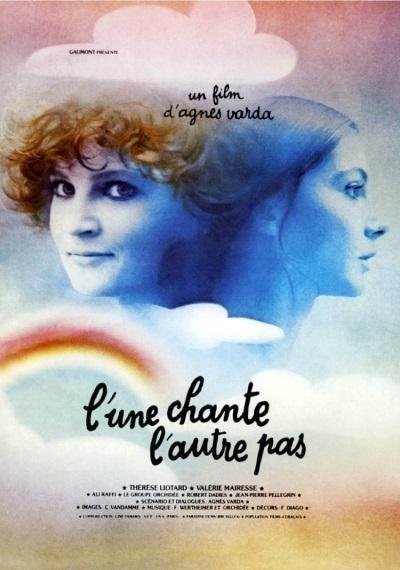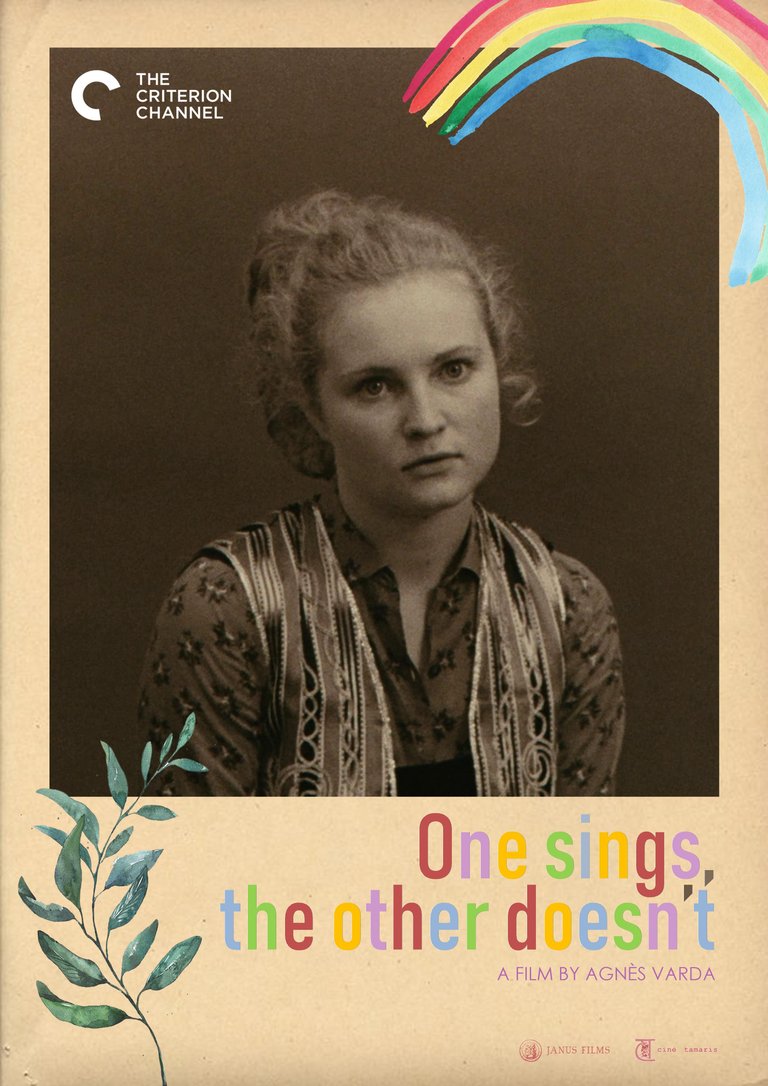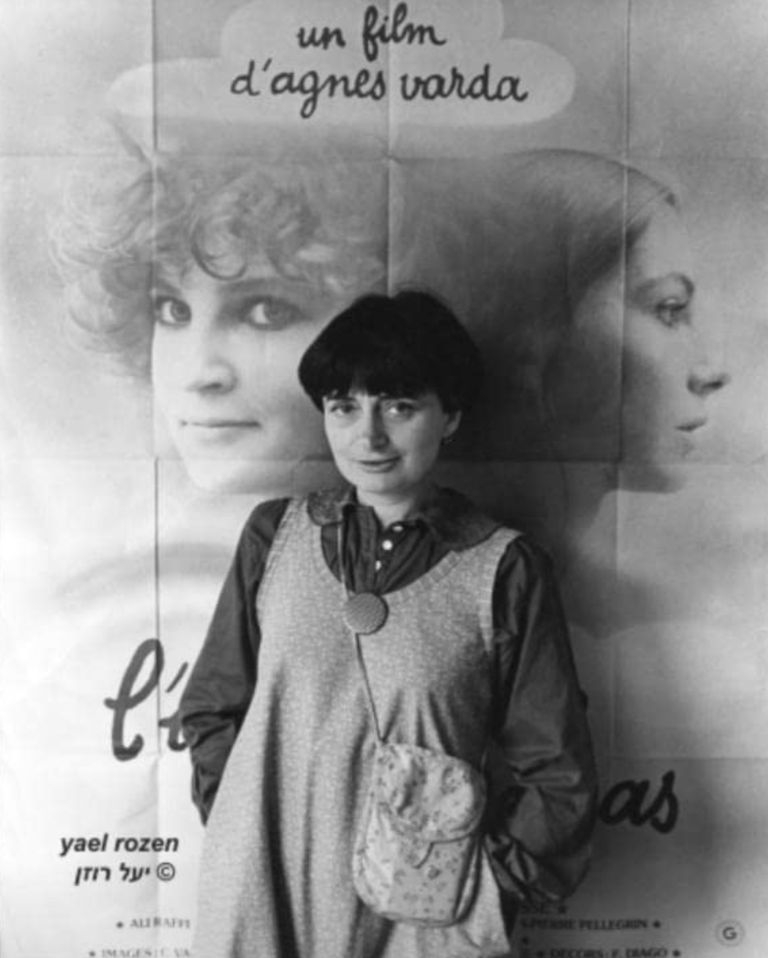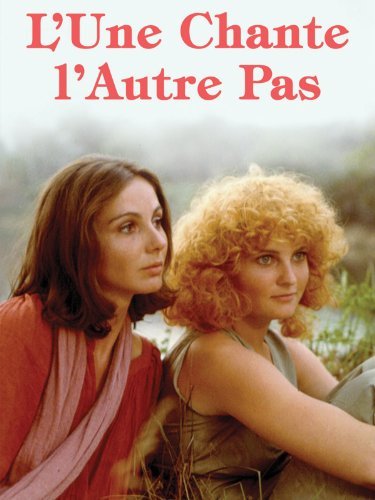One Sings, the Other Doesn't (1977): a hymn to feminism and sisterhood | un canto al feminismo y la sororidad
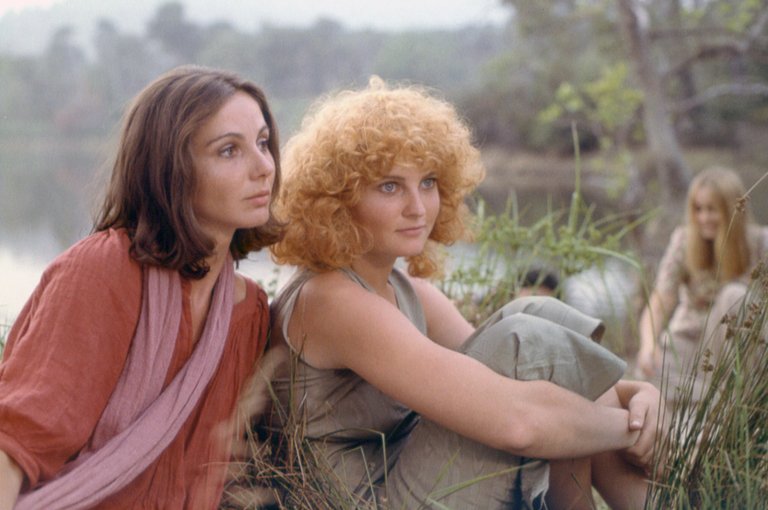
Of the long filmography of the celebrated French director Agnès Varda, I had only seen Cléo from 5 to 7 (1962) and Vagabond (1985), but between that black and white drama with wonderful photography and avant-garde shots; and the color film that tells the story of a woman who appears dead in a ditch, Varda wrote and directed this other work that became a classic, not only of her filmography, but of the cinema of the seventies and of the stories related to feminism.
De la larga filmografía de la celebrada directora francesa Agnès Varda, solamente había visto Cléo de 5 a 7 (1962) y Vagabond (1985), pero entre aquel drama en blanco y negro con una fotografía maravillosa y unas tomas vanguardistas; y la cinta a color que relata la historia de una mujer que aparece muerta en una zanja, Varda escribió y dirigió esta otra obra que se convirtió en un clásico, no sólo de su filmografía, sino del cine de los años setenta y de las historias relacionadas con el feminismo.
L'une chante, l'autre pas (One Sings, the Other Doesn't) is a musical drama that follows the lives of two young women whose lives are shown to us over fourteen years mixing their individual lives, their friendship and the background events of one of the most important periods in the history of the West and world feminism. The film begins in 1962 with Pauline, a young woman with reddish hair and blue eyes who, about to graduate from high school, doesn't want to continue her studies because her dream is to dedicate herself to writing songs and singing them in different places. But this adolescent cliché is accompanied by a critical attitude towards life, society, the patriarchal model and even towards her own parents, a classic bourgeois couple who don't view favorably the rebellion of her daughter. Pauline is not only a nonconformist girl, but also a very analytical and intelligent person who sees how women are treated as second-class people even when they are recognized. So when a series of random events lead her to meet Suzanne, Pauline wants to help her. The woman, barely five years older than her, but already caring for two children of a man she cannot marry, is pregnant with a third child that she cannot have and Pauline does for Suzanne what no one had done before or would do later: help her, listen to her and motivate her to take charge of her own life.
L'une chante, l'autre pas (One Sings, the Other Doesn't) es un drama musical que sigue la vida de dos mujeres jóvenes cuyas vidas nos son mostradas a lo largo de catorce años en los que se mezclan sus vidas individuales, su amistad y los acontecimientos de fondo de uno de los períodos más importantes de la historia de occidente y del feminismo mundial. La película comienza en 1962 con Pauline, una joven de cabellos rojizos y ojos azules que, a punto de graduarse de secundaria, no quiere continuar sus estudios porque su sueño es dedicarse a escribir canciones y cantarlas en diferentes lugares. Pero ese cliché adolescente va acompañado de una actitud crítica ante la vida, la sociedad, el modelo patriarcal e incluso hacia sus propios padres, una pareja burguesa clásica que no ve con buenos ojos la rebeldía de su hija. Pauline no es sólo una chica inconforme, sino también una persona muy analítica e inteligente que ve cómo las mujeres son tratadas como personas de segunda categoría incluso cuando son reconocidas. Por eso, cuando una serie de eventos azarosos la llevan a conocer a Suzanne, Pauline quiere ayudarla. La mujer, apenas cinco años mayor que ella, pero que ya vela por dos hijos de un hombre con quien no puede casarse, está embarazada de un tercer niño que no puede tener y Pauline hace por Suzanne lo que nadie había hecho antes ni haría luego: ayudarla, escucharla y motivarla a tomar las riendas de su propia vida.
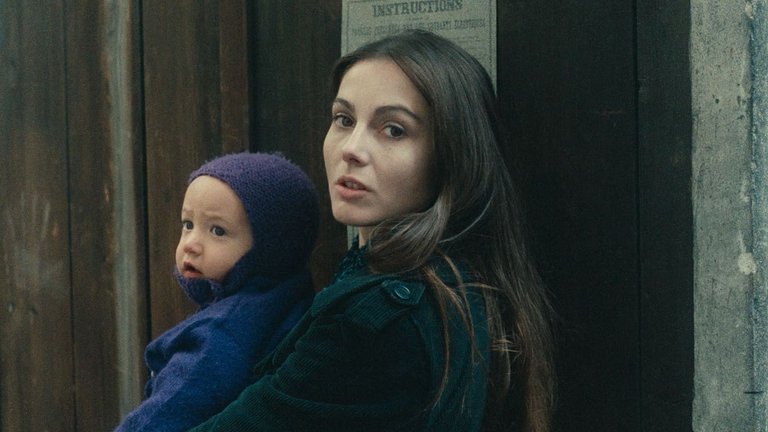
It should be noted that in those years, abortion was illegal in France. In order to undergo an intervention like that, a woman had to go to Amsterdam or Switzerland, which, of course, cost much more money. By lying to her parents, Pomme obtains the amount that Suzanne needs to have an abortion and from there the two women will share a friendship that will survive different events and the inexorable passage of time.
Cabe destacar que para aquellos años, el aborto era ilegal en Francia. Para poder someterse a una itervención como esa, una mujer tenía que ir a Amsterdam o a Suiza, lo cual, por supuesto, costaba mucho más dinero. Mintiendo a sus padres, Pomme consigue el monto que Suzanne necesita para abortar y a partir de allí las dos mujeres compartirán una amistad que sobrevivirá a diferentes eventos y al inexorable paso del tiempo.
At the beginning, when we meet the protagonists, we cannot imagine two more different women. Pauline is younger, but she has a firmer character; Suzanne, despite being a mother, is much more fragile; one doesn't want to get married, the other has children from a man she loves, but who is still married to another woman; one seems a victim of society and the other has the strength to want to change that. However, as time passes, both will converge in a relationship of sisterhood, mutual support, love and defense of the rights of women to decide about their destinies, their jobs, their bodies and their desires. Although the film lasts just two hours, Varda manages to show the important changes that occurred in the sixties in France and much of the world, using different events such as the Prague Spring, or the case of a woman who was prosecuted in France for having an abortion after being raped and was acquitted by law. Against the backdrop of an increasingly modern and open society, Suzanne and Pauline's friendship is also strengthened by the joint struggle that, each in her own way, carry out to help other women in need. In different ways, One Sings, the Other Doesn't is a hymn to friendship and the different facets of femininity shown in the film: motherhood, pregnancy, self-realization, breastfeeding, consciousness and defense of one's own body... in short, about the joy and challenge that being a woman represents (which has always represented).
Al inicio, cuando conocemos a las protagonistas, no podemos imaginar dos mujeres más diferentes. Pauline es más joven, pero tiene un carácter más firme; Suzanne, a pesar de ser madre, es mucho más frágil; una no quiere casarse, la otra tiene hijos de un hombre al que ama, pero que sigue casado con otra mujer; una parece víctima de la sociedad y la otra tiene la fuerza para querer cambiar eso. Sin embargo, conforme pase el tiempo, ambas irán convergiendo en una relación de sororidad, apoyo mutuo, amor y defensa por los derechos de las mujeres a decidir sobre sus destinos, sus trabajos, sus cuerpos y sus deseos. Aunque la película dura apenas dos horas, Varda se las arregla para mostrar los importantes cambios que ocurrieron en la década de los sesenta en Francia y buena parte del mundo, valiéndose de diferentes sucesos como la primavera de Praga, o el caso de una mujer que fue enjuiciada en Francia por abortar después de haber sido violada y que fue absuelta por la ley. Con el fondo de una sociedad cada vez más moderna y abierta, la amistad de Suzanne y Pauline se afianza también por esa lucha conjunta que, cada una a su manera, llevan a cabo para ayudar a otras mujeres que lo necesitan. De diferentes formas, One Sings, the Other Doesn't es un canto a la amistad y a las distintas facetas de la feminidad que se muestran en la cinta: maternidad, embarazo, autorrealización, lactancia, la conciencia y la defensa del propio cuerpo... en fin, sobre la alegría y el desafío que representa (que siempre ha representado) ser mujer.

It's true that some passages of the story feel more like a pamphlet than fiction, like an exposition of different ideas that need to be discussed and changed, but that are approached in a somewhat stuffed way giving the feeling of social propaganda more than of cinematographic work. However, these passages are few and brief and do not in any way tarnish Varda's good work in addressing issues as current today as the patriarchal system and feminism.
Es cierto que algunos pasajes de la historia se sienten más como un panfleto que como una ficción, como una exposición de diferentes ideas que es necesario discutir y cambiar, pero que se abordan de manera un tanto acartonada dando la sensación de propaganda social más que de obra cinematográfica. Sin embargo, estos pasajes son pocos y breves y no empañan para nada la buena labor de Varda al abordar temas tan vigentes hoy día como el sistema patriarcal y el feminismo.
There are beautiful sequences in the film, the performances of Valérie Mairesse as Pauline and Thérèse Liotard as Suzanne are wonderful, the script is well written and the music, originally composed for the film with such unusual lyrics, but so sharp for the moment, it's very well done. Particularly, I enjoyed the exchange of postcards between the two women over the years in which they told each other what was happening in their lives, short letters that served as a bridge to sustain a friendship that was never lost despite time and distance. If we add to this Varda's wit and the colorful portrait of a historical era that I really like - the late sixties and early seventies - we get a beautiful, inspiring, reflective film that does not become toxically obsessed with the topics mentioned, but does state them and denounce them with the clarity and force with which few dared in those years. Pauline is a confirmed rebel who wants to change feminine paradigms and Suzanne, although more fragile at the beginning, is a woman who is dedicated to helping other women, but behind and within them lives Agnès Varda, the true heroine who dared to achieve works like this and many other wonderful films to say, in their own way, what no one else could or wanted to say, but that everyone needed to hear, have any of you seen this film? I read you in the comments.
Hay secuencias preciosas en la película, las interpretaciones de Valérie Mairesse como Pauline y de Thérèse Liotard como Suzanne son maravillosas, el guión está bien escrito y la música, compuesta originalmente para la película con esas letras tan poco comunes, pero tan agudas para el momento, está muy bien hecha. Particularmente, disfruté el intercambio de postales entre las dos mujeres a través de los años en los que se fueron contando lo que iba sucediendo con sus vidas, breves misivas que sirvieron de puente para sostener una amistad que nunca se perdió a pesar del tiempo y la distancia. Si a ello sumamos el ingenio de Varda y el colorido retrato de una época histórica que a mí me gusta mucho - finales de los sesenta y principios de los setenta - obtenemos una película bonita, inspiradora, reflexiva, que no se obsesiona de manera tóxica con los tópicos mencionados, pero que sí los enuncia y los denuncia con la claridad y la fuerza con la que pocos se atrevían en aquellos años. Pauline es una rebelde confirmada que quiere cambiar los paradigmas femeninos y Suzanne, aunque más frágil al comienzo, es una mujer que se dedica a ayudar a otras mujeres, pero detrás y dentro de ellas vive Agnès Varda, la verdadera heroína que se atrevió a realizar obras como esta y muchas otras maravillosas películas para decir, a su manera, lo que nadie más podía o quería decir, pero que todos necesitaban escuchar, ¿alguno de ustedes ha visto esta película? Los leo en los comentarios.
